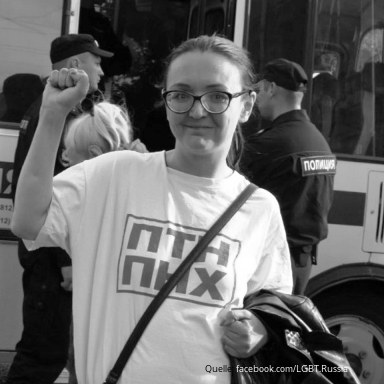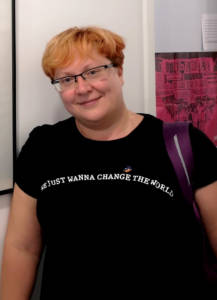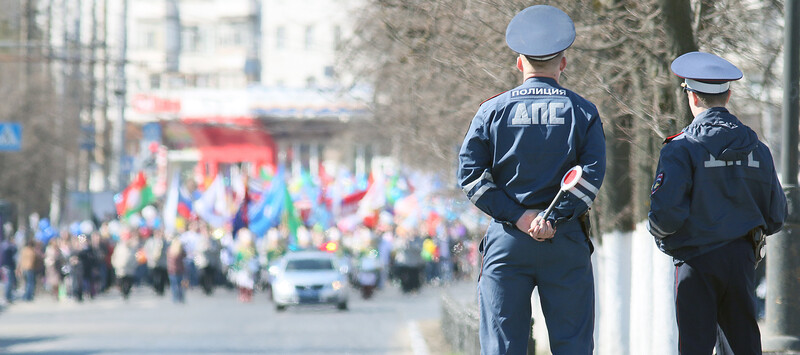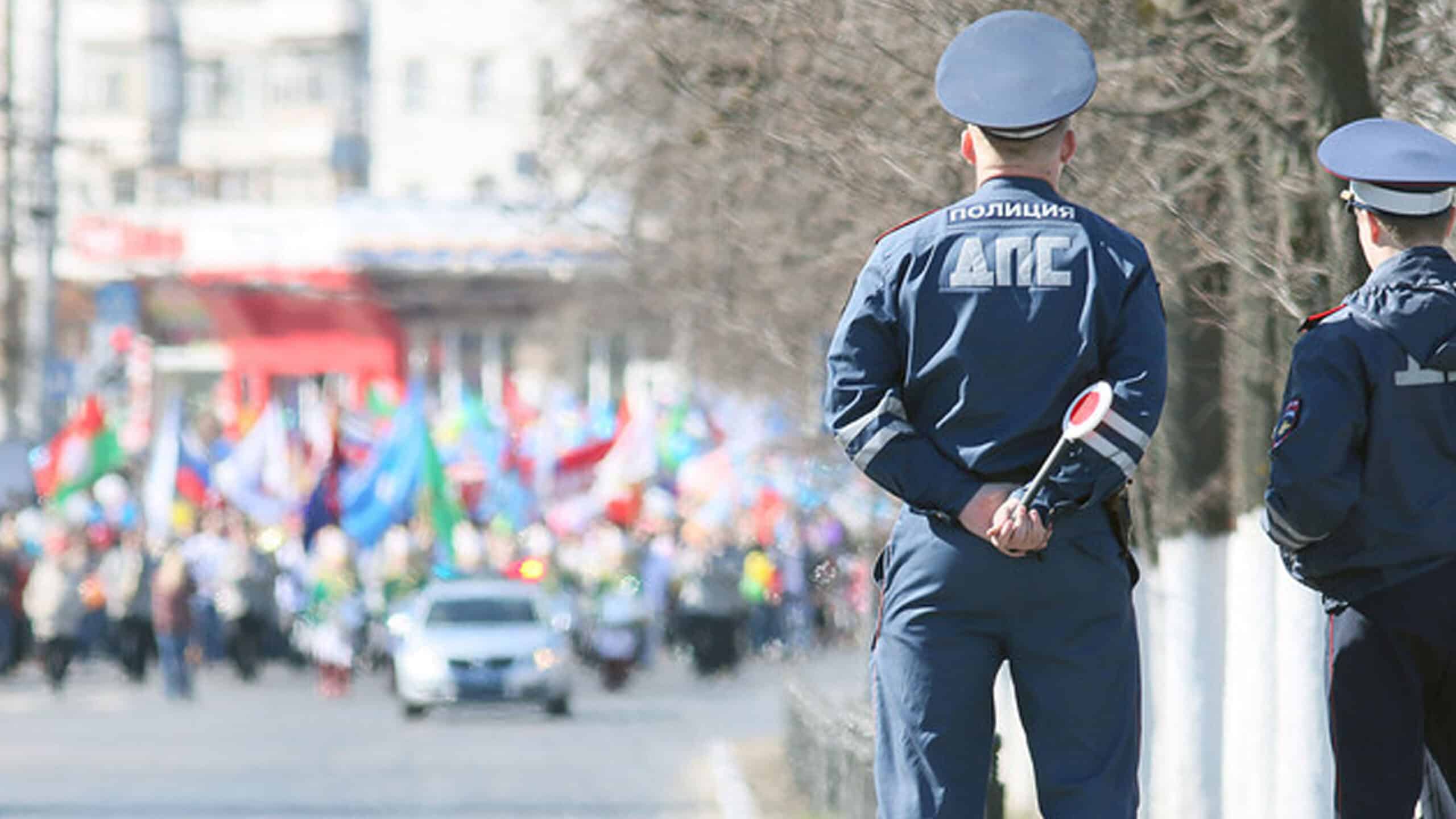Tatiana Vinnichenko had good reason to be proud on 27 July: At the Berlin CSD, the Russian LGBT* activist and head of the Moscow Community Centre was awarded the Soul of Stonewall Award 2019 excellent. But the joy was overshadowed by the Murder of LGBT activist Yelena Grigoryevawho was found dead in St. Petersburg on 22 July.
In this interview, Tatiana Vinnichenko and her colleague Valentina Likhoshva talk about their aid project for persecuted people. LGBT in Russia, describes how the community is reacting to the threat from the state and radicals - and says what support we can provide here in Germany.
The Moscow Community Centre is more than just a platform for LGBT projects and groups in the Russian capital. LGBT people from all over the country receive psychological counselling here: seven days a week and around the clock - the internet makes it possible.
Above all, however, gays, lesbians and trans* people from the North Caucasus, who are considered "harmful elements" there and are subject to repression, including torture and murder, find protection and help here. The emergency shelter at the Moscow Community Centre has space for 15 people. In times of crisis, such as 2017, ahen LGBT people were persecuted on a massive scale in ChechnyaAt times, up to 40 people found refuge here.
The advice and support offered by your centre is unique in Russia in every respect. How do you finance your extensive and labour-intensive activities?
Tatiana: Of course, we don't receive a single rouble from the state. We only receive financial support from foundations abroad, mainly from the Swedish LGBT organisation "Regnbågsfonden".
The law against "homo-propaganda" inevitably leads to harsh aggression against LGBT people
The Russian government automatically considers all non-governmental organisations (NGOs) that receive financial support from abroad to be "anti-state". Since 2012, such NGOs have therefore had to register as "foreign agents", otherwise there is a risk of severe penalties. Most civil rights organisations have therefore had to stop their work. What is your situation?
"It's better if we are seen as little as possible by the state"
Tatiana: Although we see ourselves as an NGO, we have not registered as such. We therefore do not officially exist as an organisation for the seed, but are only perceived as individuals. We therefore don't have the rights of an NGO and can't approach politicians as such, for example. However, it is better for our work if we are seen as little as possible by the state. In any case, due to the "Homosexual Propaganda Act" only offer counselling and direct help, but do not have a broad impact on the public, for example through educational work.
The law against "homosexual propaganda" was passed by a large majority in parliament in 2013. Positive statements about homosexuality in the presence of minors or via media such as the internet have since been criminalised. As a result, there is effectively no sex education possible, no counselling on coming out, no public HIV prevention for gays - and gay love scenes are censored in films such as the Elton John biopic "Rocketman".
Tatiana: The social mood towards LGBT people has definitely worsened in Russia in recent years as a result of the law. The law divides society into first and second class people - and we belong to the latter. We should not talk about these second-class people and certainly not show children and young people that they are normal and equal. This inevitably leads to harsh aggression towards LGBT people.
Tatiana Vinnichenko: Hatred of LGBT people is fuelled at the highest political level

In St. Petersburg LGBT activist Yelena Grigoryeva was found stabbed to death on 22 July 2019. Did you ever think such an escalation of violence was possible?
Tatiana: It's such an incredible shock for all of us, but something like this was indeed to be expected. The pressure on LGBT people in Russia is growing and can be felt everywhere. There are repeated attacks; people are beaten up and experience persecution of all kinds. The highest political level is fuelling hatred. The idea of homophobia has now become a national ideology and, like the anti-propaganda law, is used by radical groups to legitimise their homophobic attacks. In their understanding, they are only implementing what the government wants and believe that they are "protecting" the Russian people through their misdeeds.
Jelena had registered with the LGBT Network and the "Hetero and LGBT alliance for equal rights" engaged. In July, her name was on a Website emerged calling for the murder of LGBT people and promising a reward for it. Dozens of well-known gays and lesbians are listed there with their photo and home address.
Tatiana: Jelena was threatened several times in different ways and therefore contacted the police - but without success. The website has been around since spring 2018, has been taken down several times, but keeps popping up. Jelena had complained in a Facebook post that the judicial authorities were doing nothing against the operators of the website. Three days later, Jelena was dead.
"Homophobia has now become a national ideology"
How is the political public now reacting to the Jelena murder case?
Valentina: Unsurprisingly, lies are put out into the world. Yelena was drunk and the murder was the result of a relationship. The intention behind these absurd theories is obvious: to distract from the real reason for the murder and thereby take the public pressure off the case. I therefore do not believe that there will be a transparent and correct police investigation. Many of Jelena's friends and activists are therefore trying to gather information themselves.
But does that mean that the Russian public is at least discussing the murder of Yelena, including in the media?
Tatiana: Of course, the state media are not reporting on this in the way that would be appropriate. But civil society is not resting on its laurels and is drawing attention. In St. Petersburg, for example, there was a vigil that was almost a demonstration. A Pride demonstration is planned for 3 August in St. Petersburg. If it can actually take place, Jelena will of course be a big topic there. Incidentally, it will also be at Pride in Amsterdam, as the organisers there have announced. We are very grateful for that. In recent years, Russia has repeatedly come under international scrutiny for its anti-LGBT activities. The government will therefore try to prevent Western European countries from discussing this - and deny any connection with homophobia in the murder case.

Many in Russia think LGBT people can live their lives after all
What does the attack mean for you activists who act with your name and face in public and thus make yourselves a target in the truest sense of the word? Will some people now withdraw out of fear?
Tatiana: It is clear that the murder of Yelena affects and touches everyone in the Russian LGBT community. I think this will encourage some people to leave the country. On the other hand, it will make all those who previously thought that there was no need to fight for LGBT rights because it is actually quite easy to live as a lesbian or gay person in Russia think again. For them, this may now be the point to say: I have to take to the streets for my rights.
The prevailing attitude, especially in society at large, is that LGBT people can live their lives in Russia: "Nothing will happen to them!". However, it is now becoming clear that people are even prepared to kill us. I hope that this will also shake up people outside the LGBT community.
How can the community in Germany support LGBT people in Russia?
Tatiana: It already helps a lot that the community and the media in Western Europe report so widely on the situation of LGBT people. This is definitely being recognised in Russia and is having an impact here and there. However, we would also like to see closer cooperation between Russian and Western European LGBT organisations, especially German ones. For example, we at the Moscow Community Centre can offer our expertise when it comes to working with LGBT people from various ethnic and religious minorities who are seeking refuge.
To what extent can the German government exert influence?
Tatiana: For example, by asking questions at a diplomatic level about how such excessive and violent homophobia can come about and what the Russian government intends to do about it.
"We would like to see closer cooperation with Western European LGBT organisations"
Valentina: But the most important thing would be if there was cooperation in the area of humanitarian visas for persecuted LGBT people, especially those from the North Caucasus. I can illustrate this with an example. A trans* man experienced persecution in Chechnya and had to fear for his life. He had applied for a humanitarian visa for himself and his girlfriend at the German Embassy in Moscow. He is a neurosurgeon and speaks perfect German. The authorities rejected his application. That was shocking for all of us. And we couldn't understand it because we know that Germany respects LGBT rights. The only way we can explain it is that the embassy staff completely misjudged the situation for LGBT people in the North Caucasus.

Link to the Moscow Community Centre: https://mcclgbt.com/en/mcc/
Article on the murder of Jelena on queer.de: https://www.queer.de/detail.php?article_id=34128&fbclid=IwAR1jEPcptyl-DQ7l-7H7maNxWxuaCi5oGbMa0KBQKei6QBII5ZY_GiyTIOI
Article on the murder of Jelena on zeit.de: https://www.zeit.de/gesellschaft/zeitgeschehen/2019-07/st-petersburg-lgbt-elena-grigorjewa-menschenrechte-tot-festnahme










